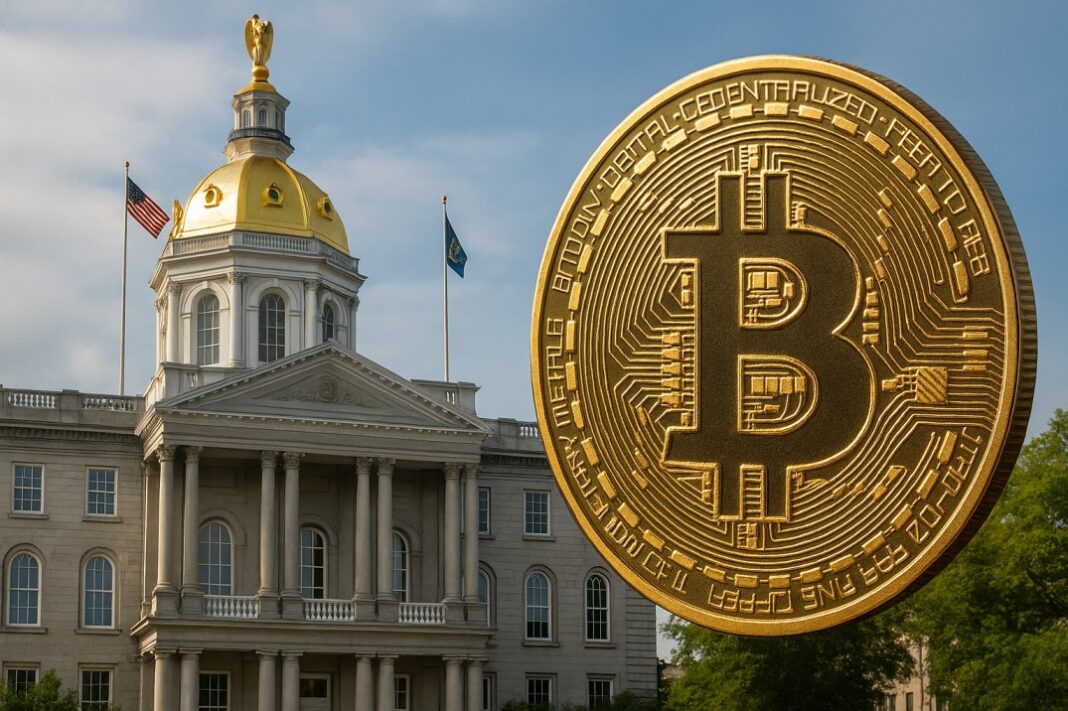The state of New Hampshire has approved a groundbreaking bond structure that uses Bitcoin as collateral. It hopes to open the door for digital assets in the traditional debt market.
Historic Approval of the Bitcoin-Backed Bond
On November 19, 2025, the Business Finance Authority (BFA) approved a $100 million conduit bond that is backed by Bitcoin rather than state tax revenue.
The bond allows private companies to borrow against over-collateralised Bitcoin held in custody by BitGo.
The BFA acts as a conduit and does not assume repayment risk—investors are protected by the Bitcoin collateral.
How the Structure Works and Its Mechanics
The bond is structured by Wave Digital Assets in partnership with issuer specialist Rosemawr Management. Borrowers must post about 160 percent of the bond’s value in Bitcoin as collateral.
If Bitcoin’s value drops below roughly 130 percent of the loan value, a liquidation mechanism triggers to protect bondholders.
Fees from the transaction and any gains from the collateral will flow into the Bitcoin Economic Development Fund, aimed at supporting innovation and business growth in New Hampshire.
The global bond market is valued at about $140 trillion, with the U.S. portion at roughly $58.2 trillion. This Bitcoin-backed bond could serve as a blueprint for other states and municipalities to introduce digital assets into mainstream finance.
If the model proves viable, institutional interest may rise, enabling more digital-asset-backed fixed-income instruments beyond ETFs.
New Hampshire’s Digital Asset Strategy
Earlier in 2025, New Hampshire became the first U.S. state to allow its treasury to invest up to 5 percent of public funds in digital assets. Governor Kelly Ayotte signed the Strategic Bitcoin Reserve bill into law in May.
This bond deal builds on that strategy by using Bitcoin as active collateral—not just a held reserve.
The BFA now oversees this prototype bond, monitoring its performance and potential scalability.
Observers will watch whether this model becomes standard for other jurisdictions or remains a specialised experiment.
Results from this issuance could determine whether digital-asset collateral gains acceptance in conservative bond markets.
Disclosure:This article does not contain investment advice or recommendations. Every investment and trading move involves risk, and readers should conduct their own research when making a decision.
Kriptoworld.com accepts no liability for any errors in the articles or for any financial loss resulting from incorrect information.

Tatevik Avetisyan is an editor at Kriptoworld who covers emerging crypto trends, blockchain innovation, and altcoin developments. She is passionate about breaking down complex stories for a global audience and making digital finance more accessible.
📅 Published: November 19, 2025 • 🕓 Last updated: November 19, 2025


